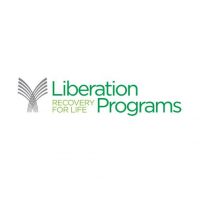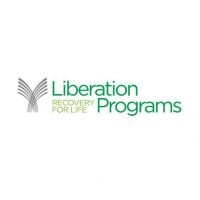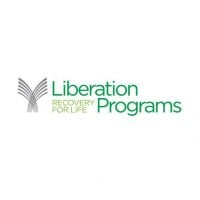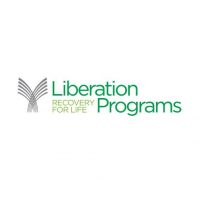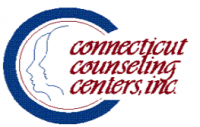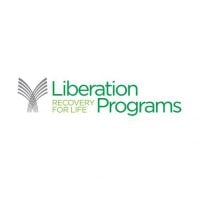Connecticut Renaissance - Franklin street
Drug Rehab Center in Stamford, Connecticut
Connecticut Renaissance - Franklin Street in Stamford, Connecticut, is an addiction treatment facility that offers comprehensive treatment plans for substance abuse and mental health issues, including detox, aftercare support, and various levels of care such as intensive outpatient and outpatient, with a multidisciplinary team and evidence-based treatments.
About This Connecticut Facility
Connecticut Renaissance, located in Stamford, Connecticut, is an outpatient facility dedicated to treating individuals with mental health diagnoses and/or substance addiction. It stands out for its commitment to empowering clients through scientifically backed therapies in a respectful, dignified, and passionate environment. The facility's focus on using best practices ensures that patients receive the most effective tools for positive change.
- Empowerment through Science-Based Therapies: Connecticut Renaissance utilizes therapies that have been rigorously tested for effectiveness, ensuring clients receive top-quality care.
- Comprehensive Service Offering: Patients have access to a wide range of services, including psycho-educational groups, stress and anger management, and relapse prevention.
- Respect, Dignity, and Passion: These core values are at the heart of Connecticut Renaissance’s approach, ensuring every client is treated with the utmost care.
Accredited by CARF, Connecticut Renaissance meets high-quality standards in all its services. This facility is recognized for its individualized care approach and its commitment to facilitating long-term recovery. With the availability of various levels of care and acceptance of private health insurance, it provides accessible and comprehensive treatment options.
Connecticut Renaissance addresses a broad spectrum of issues, including alcoholism, opioid addiction, dual diagnosis, drug addiction, substance abuse, and mental health challenges. Treatment methods range from detox and drug rehab to intensive outpatient programs and aftercare support, ensuring a tailored approach to recovery for every individual.
Genders
Ages
Modality
Additional
Accreditations

CARF
The Commission on Accreditation of Rehabilitation Facilities (CARF) is a non-profit organization that specifically accredits rehab organizations. Founded in 1966, CARF's, mission is to help service providers like rehab facilities maintain high standards of care.
Conditions and Issues Treated
Opioid addiction is the result of repeated use, or abuse, of opioid drugs. It is recommended for people who are dependent on opioids, or who have a high risk for dangerous health concerns, to seek professional treatment. Treatment plans usually include behavioral therapy and medication-assisted treatment.
Opioid drugs include: fentanyl, heroin, methadone, oxycodone, and oxymorphone.
Opioid addiction treatment is beneficial for:
- People who have a history of severe withdrawal.
- People with a high risk for dangerous health concerns.
- People having difficulty overcoming opioid addiction on their own.
There are different kinds of Dual Diagnosis:. A person who simultaneously experiences both a mental illness and an addiction disorder. Or, a person who experiences one or more coexisting (simultaneous) mental health conditions in addition to a primary substance use disorder.
The treatment requires a multi-disciplinary approach, it’s crucial for individuals to partner up with a healthcare provider who understands all the recovery components.
Levels of Care Offered at Connecticut Renaissance - Franklin street
This center offers a variety of custom treatment tailored to individual recovery. Currently available are Aftercare Support, Detox, Drug Rehab, Dual-Diagnosis, Intensive Outpatient, Outpatient, with additional therapies available as listed below.
Detox is the stage of recovery where the drugs or alcohol are entirely removed from your body. There are two different ways to detox, with medications and without. For many drugs and alcohol, the acute phase of detox can be completed in a number of days.
An Intensive Outpatient Program (IOP) is a form of drug treatment that allows individuals to receive the therapy they need while remaining in their homes and community.
An IOP is typically 3-5 days per week, at least 4 hours each day of treatment. Treatment can last for a few months or longer, depending on the situation.
An IOP is a step down from an inpatient treatment center and can be used as a step down from an inpatient stay or as a more intense form of outpatient treatment. IOPs allow for the flexibility to continue working and living at home while still meeting treatment demands.
The outpatient programs in Stamford, CT are for those addicted drugs or alcohol. The goal of the outpatient rehabilitation program is to make them stop abusing drugs or alcohol, reduce drug use or addictive behaviors, and become entirely sober. It is generally required to attend the outpatient program for 10-12 hours every week.
Patients can be administered on-the-spot medication to ease withdrawal symptoms such as anxiety, increased heart rate, and even depression. Groups such as Alcoholics Anonymous (AA) and Narcotics Anonymous (NA) can be used as a part of outpatient treatment to help maintain sobriety.
Aftercare support is a service many addicts need to ensure their success at recovery. This service usually includes one-on-one or group therapies, assistance from a sponsor and other types of help designed to make sure the patient continues living a life free from drugs.
Patients also may require medication to help them battle addiction. Some people have been able to successfully recover without additional medications, but others have found that they need help during their transition. Long-term, the patient must take the initiative to attend meetings and receive help from other addicts in recovery.
Therapies & Programs
People in addiction recovery can benefit from individual therapy. This type of therapy involves meeting with a therapist one-on-one. This allows for a personal and trusting relationship to be built so that the patient can be truly themselves and express any emotions they feel. Individual therapy leads to greater understanding and peace about your triggers for addiction and coping strategies to prevent relapse.
Couples therapy for drug addiction is based on the belief that addiction is a family disease. Everyone involved with an addict, not just the addict themselves, is affected by their behavior and the changes the addict goes through. The relationship also changes the addict’s significant other and has likely picked up some codependent behaviors. Codependency is a term used to describe a person obsessed with another person and their needs and feelings while neglecting their own. Addicts are usually people-pleasers, so it is understandable how one can become codependent in relationships with addicts.
Family therapy is a type of group problem-solving that aims to improve communication and relationships between the patient, their family, and sometimes friends. The main goal of family therapy for drug addiction is to create an environment where communication can occur without judgment, hostility, or blame. The therapist is with the family as they learn to communicate with each other differently, especially with the addict when s/he is using.
Group therapy sessions are held in rehab facilities, clinics, churches or community centers that offer drug addiction treatment. People who attend these groups are encouraged to voice their feelings and support other addicts in recovery. This helps group members strengthen their own recovery program while cheering on others who are struggling with sobriety.
Group therapy sessions provide recovering addicts with a chance to cope with everyday situations that many face. Group therapy sessions are held in rehab facilities, clinics, churches or community centers that offer drug addiction treatment.
People who attend these groups are encouraged to voice their feelings and support other addicts in recovery. This helps group members strengthen their own recovery program while cheering on others who are struggling with sobriety.
Cognitive Behavioral Therapy (CBT) helps addicts identify faulty, negative thinking so that they can work together with the therapist to find healthier ways of thinking. CBT focuses on specific aspects of each person’s thinking, feeling, physiology, and behavior. It aims to identify specific problems in these areas, and create a personalized treatment strategy.
Payment Options Accepted
For specific insurance or payment methods please contact us.
Is your insurance accepted?
Ask an expert, call (888) 674-0062
Connecticut Renaissance Associated Centers
Discover treatment facilities under the same provider.
- Connecticut Renaissance - Waterbury West Treatment Program in Waterbury, CT
- CT Renaissance in Stamford, CT
- Connecticut Renaissance - Main Street in Bridgeport, CT
- Connecticut Renaissance - Wolcott street in Waterbury, CT
- Connecticut Renaissance - Central Avenue in Waterbury, CT
Learn More About Connecticut Renaissance Centers
Additional Details
Specifics, location, and helpful extra information.
Stamford, Connecticut 6901 Phone Number(203) 602-4441 Meta DetailsUpdated April 15, 2024
Staff Verified
Patient Reviews
There are no reviews yet. Be the first one to write one.
Stamford, Connecticut Addiction Information
Connecticut has a higher rate of substance abuse and addiction than the national average. The state ranks in the top 10 in the country for illicit drug dependence among those ages 18 to 25. In 2010, there were 9,211 people admitted to an alcohol treatment facility for alcohol abuse combined with a secondary drug. Connecticut ranked fifth in the United States of America for the number of fatalities involving drunk driving in 2014.
Stamford also has a higher rate of prescription drug abuse than the rest of the country, with 3.8% of residents reporting non-medical use of prescription drugs in the past month. In Stamford, the most common drugs that are abused include alcohol, marijuana, heroin, and cocaine. Stamford, CT, has many different types of drug treatment facilities available. These include inpatient and outpatient treatment centers, 12-step programs, and detoxification centers.
Treatment in Nearby Cities
- Winsted, CT (64.6 mi.)
- East Canaan, CT (67.3 mi.)
- Brookfield, CT (30.0 mi.)
- Shelton, CT (29.3 mi.)
- New Britain, CT (57.4 mi.)
Centers near Connecticut Renaissance - Franklin street
The facility name, logo and brand are the property and registered trademarks of Connecticut Renaissance - Franklin street, and are being used for identification and informational purposes only. Use of these names, logos and brands shall not imply endorsement. RehabNow.org is not affiliated with or sponsored by Connecticut Renaissance - Franklin street.



